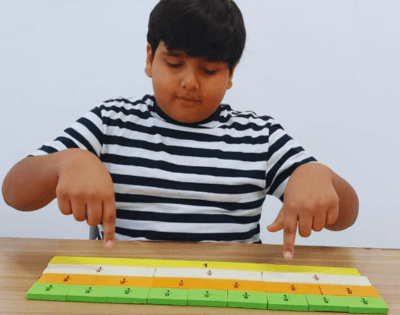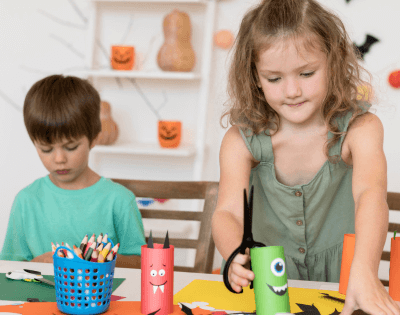Students often ask themselves questions like How can I get my grades to the toppers’ level? Which questions are likely to come in the exam? How many marks would be deducted for the wrong spelling? While the questions should be something like- How would the new science concept apply in real life? What could be an easier way to solve this problem?
Students spend time worrying about grades than they do about learning. And not for the right reasons. The grading system moulds their mind into worrying about their position in the class rather than their understanding of their lessons. Grade-obsessed culture steals their joy of learning.

Top CBSE schools in Gurgaon believe that grades are important, but being too focused on setting good grades can turn a blind eye to engaging learning. Parents take grades as the main indicator of a child’s effective learning and performance at school. They lose sight of their child’s perspective and how the pressure of scoring well takes a toll on their holistic development.
The Problem with Focusing on Grades
The study on Research on Effects of Grading highlights numerous negative effects of a strong focus on grades, including decreased intrinsic motivation, reduced interest in learning, discouragement of intellectual risk-taking, a shift towards ego-protection and social comparison, and a tendency towards superficial knowledge rather than deep, integrated learning.
Here’s what studying just for the grades can do to your child –
- Their sole motivation shifts to scoring well, instead of learning and empowering themselves.
- The learning process becomes stressful and less fun and enjoyable.
- They work hard, get good grades, only to forget the lessons afterwards.
- The pressure to perform well in exams steals the time to participate in extracurricular activities.
- Too much worry about exams can affect their overall health.
Here’s how you can use a modern education approach to promote learning over marks.
How to get kids to focus on learning, not grades
- Challenge the grades
Grades are considered a window to examine how much a child has learned, but they can give you a vague insight into it. The skill-based education system doesn’t judge students’ abilities from theoretical exams. Some might be sports stars or maths wiz, while others are musical sensations, a young Picasso or a second Einstein in the making. They have diverse talents which can’t be graded on the can’t be judged on the same scale. The grade system promotes comparing and negative comparison, which lowers the confidence of children.
- Be creative with feedback
‘Try harder’ or ‘ Get good grades next time’ is not great feedback when your kid shows you their answer sheets. Neither your child would feel great after listening to this, nor would it help them in any way. Give them developmental feedback, decentering the conversation from how much they scored. Appreciate their effort, not marks. Be more mindful of the language. Be more constructive about your criticism and help them get better.
- Take assignments as learning opportunities
Not performing up to their expectations on the assignment can be demotivating for the young ones. Turn their long faces into determined ones by making them realise that these assignments are just a stepping stone on their journey. Grades are not to be dwelt on, but a blueprint to improvise your learning experience. Instead of being critical about the grades, be more open to discussing the learning. Sit with them, do an analysis of the performance, appreciate them for the topics they nailed, and work together on the areas they need to improve.

- Better collaboration with peers
You’ll notice the same conversation among students where they talk about how tough the exam was, how they are not prepared yet, how strict or lenient the grade marking would be, or how much they think they’ll score. None of these conversations is fruitful or results in any conclusion. Encourage your child to utilise their time and conversation to ask valuable questions. Students should collaborate with their peers for group study, helping each other clear their doubts, or discuss how they are planning to up their game.

- Evolving assessments
With evolving education from a theory-based teaching approach to experiential learning in schools, there is a need to change the format of assessment. The top CBSE schools in Gurgaon use a student-centric teaching approach to empower their students with holistic skills. They help each student to excel in their areas of interest. They emphasise concept-based learning where the child understands the subject matter rather than just learning to get good grades.
The Blue Bells School for Integrated Learning, one of the top CBSE schools in Gurgaon, enables its students to experience the real joy of learning with its holistic education system. The motivation to learn should be intrinsic and not out of the societal pressure to excel in exams. It’s time we reintroduce our children to learning, which is no less than an adventure.





